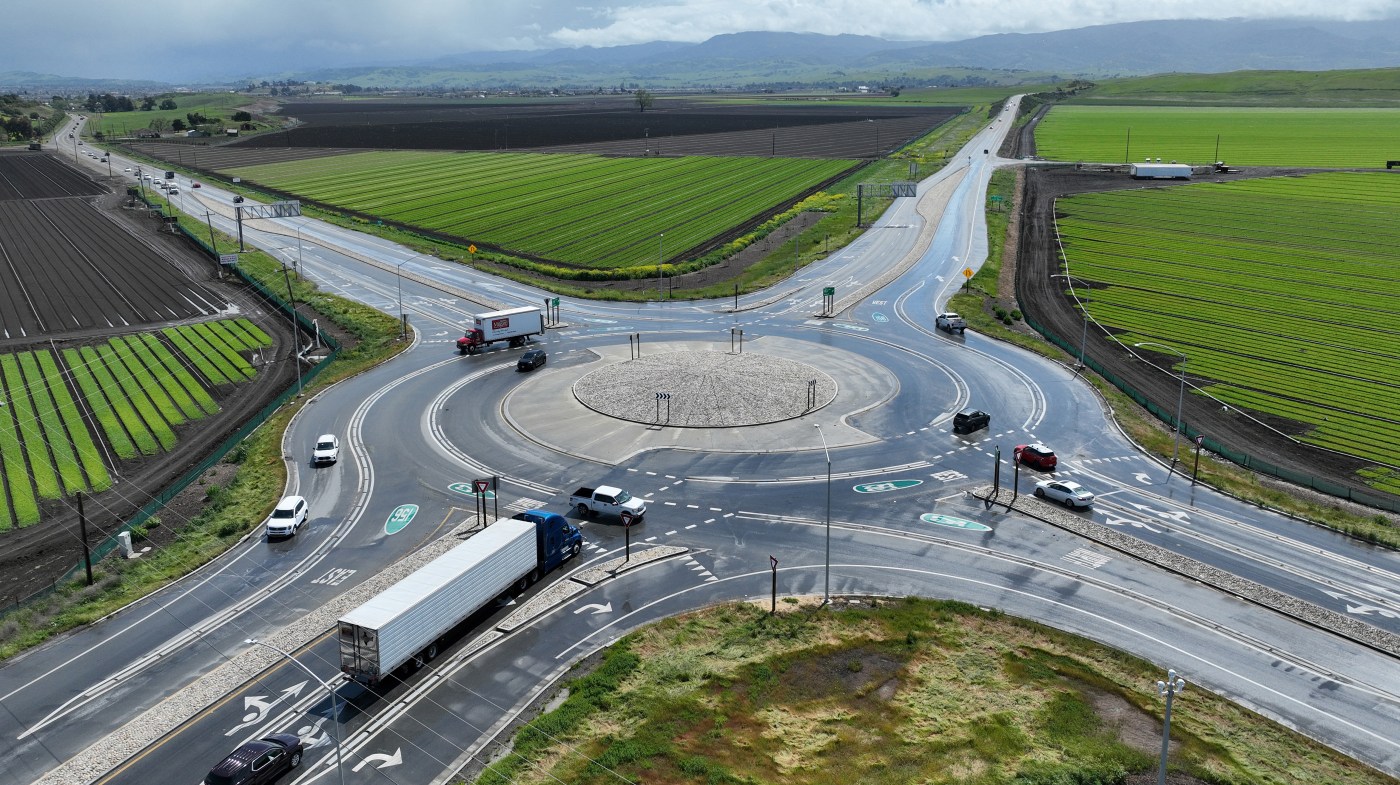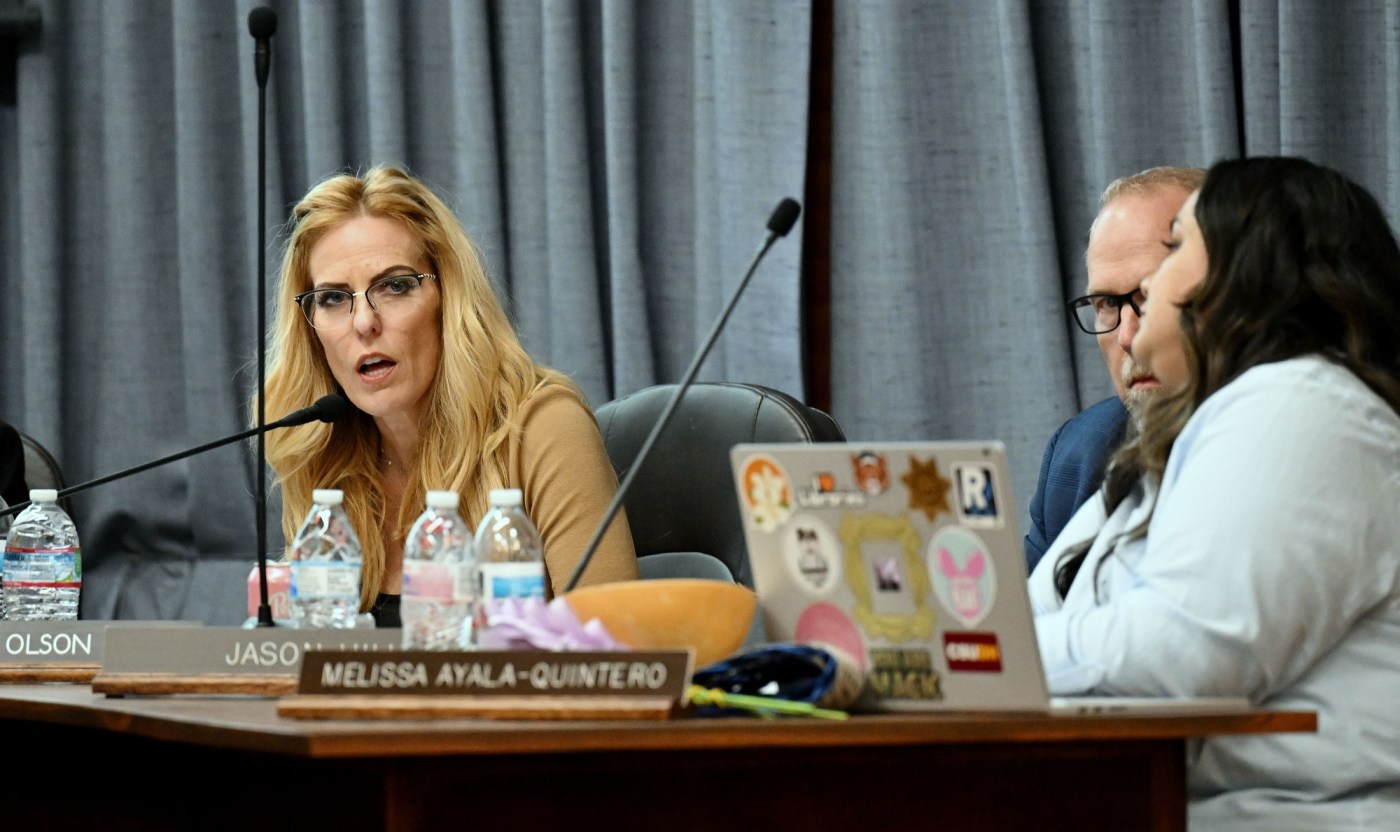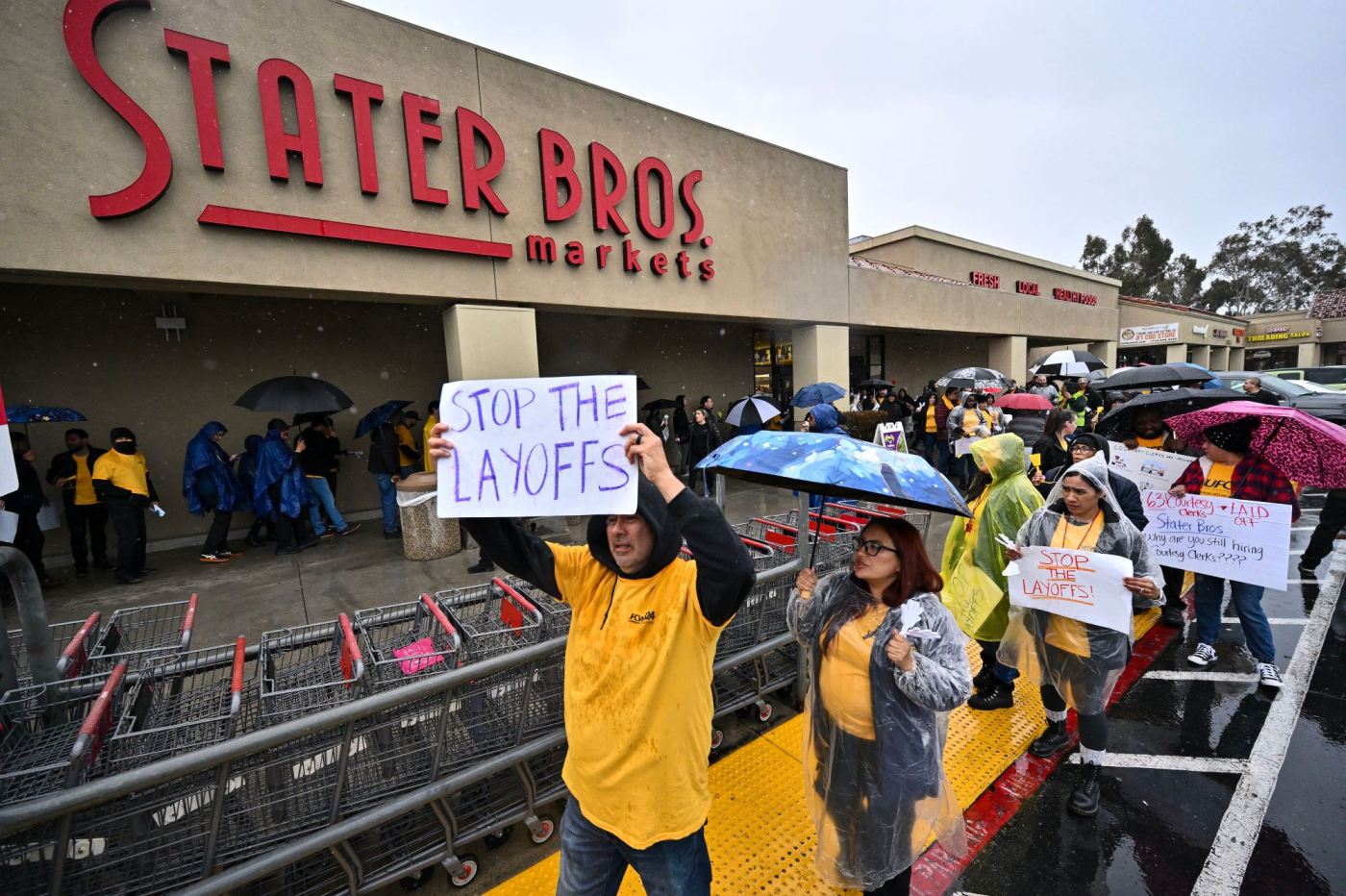When a turbo roundabout rolled into the southernmost corner of the Bay Area early last year, it became the first-in-the-state adoption of a successful Dutch traffic innovation — a multi-lane roundabout shaped like a cartoon hurricane.
And while the roundabout in San Benito County, far south of San Jose, was meant to improve safety, it brought with it a wave of confusion and a spike in accidents that saw drivers colliding at rates many times higher than before it was installed.
Wayne Wallace has witnessed the chaos. On his commutes between Hollister and San Jose, he has watched crashes unfold in front of him and seen drivers heading the wrong way, hopping over dividers, and he even claims to have spotted some cars catching air.
A year later, Wallace said it’s calmed down some, but he still catches remnants of crashes. “At least once a month, I see chunks of taillights everywhere and I’m like, ‘oh, I guess somebody else had an accident,’” he said.
The debris is a testament to dozens of fender-benders that have taken place around the intersection in the year since it opened.
A Mercury News analysis of crash data shows that crashes skyrocketed at the intersection in the year after the turbo roundabout was completed. But even as accidents have soared, serious injuries and deaths have disappeared, leaving many to assert that the roundabout is safer.
“I’m converted for sure,” said Wallace, recalling the long stops and accidents of the prior intersection. “There’s no more long waits to get through the intersection, and I haven’t seen anyone get T-boned by a semi, which is a good thing.”
Caltrans built the turbo roundabout at the crossroads of SR-25 and SR-156 because the stoplight that preceded it was not doing enough to control the flow of traffic in a notoriously dangerous spot — the site of more than twice as many accidents as similar intersections in the state, with some resulting in serious injuries or death.
Before building the roundabout, Caltrans attempted several small fixes, such as changing the timing on the traffic signals and adding rumble strips. After these failed to resolve the problems, the agency opted to create the special roundabout.
The turbo roundabout, first invented in the Netherlands, is meant to slow down drivers and reduce conflict points — places where drivers might strike each other.
The Dutch design includes extra features to prevent drivers from changing lanes while going through the intersection. Approaching drivers must choose their lane before entering the roundabout and follow overhead signage that shows which lane leads to which exit. Additionally, the Hollister rotary features lanes wide enough to accommodate semi-trucks, which are separated by raised, concrete dividers.
While a Mercury News analysis showed a spike of crashes around the roundabout when it was first completed, experts promised that crash rates would decrease over time.
So far, though, that hasn’t been the case.
The Mercury News analyzed reports of crashes from the California Highway Patrol’s Statewide Integrated Traffic Records System from January 2018 to February 2025 that occurred at the intersection and up to 250 feet away.
Crashes nearly quadrupled, leaping from 20 in 2023 to 77 in 2024. In the year after construction was completed in February 2024, crashes happened at a rate of about one every 4 and 1/2 days — compared to the year before construction began in August 2023, when crashes happened about once every 19 days.
March 2024 — the first full month after the roundabout opened — saw more crashes than any month in the preceding six years, though that total was beaten in December of the same year.
But the type of injuries tells a different story.
Technically total injuries have gone up significantly — peaking in the teens in preceding years, then up to 28 injuries last year. The vast majority of injuries since the roundabout was installed, though, are categorized by the Highway Patrol as “possible injuries” — with relatively mild symptoms like nausea, a limp, or a complaint of pain, but no other physical signs. The rest of the crash injuries last year were minor injuries like bruises, scrapes, or minor cuts, and those happened at similar numbers as preceding years.
Since construction began on the roundabout in August 2023, there have been no deaths or serious injuries – covering everything from broken bones to paralysis or unconsciousness – at the intersection, according to the crash data.
Those statistics have some experts heralding the roundabout as a net win for public safety.
“If you’ve eliminated deaths and serious injuries at this location, this project is a success,” said Julia Griswold, director of the Safe Transportation Research and Education Center at University of California, Berkeley. “There’s going to be fender benders, but the societal cost of those is far lower.”
When Hollister to Gilroy commuter Toni Bowles first encountered the roundabout, she and others expressed nervousness about using the intersection and the lack of education on how to navigate it. Now she tries to be mindful when she goes through the rotary, and sees the benefits.
“Back when it was a (stop)light, there were some severe fatalities,” recalled Bowles, who has commuted past the intersection for 20 years and remembers coming south through the intersection late at night to see ghastly crashes. “It would be one in the morning and you would see three ambulances.”
Now, things are different. “I still see people in collisions, but they’re out of their car and their airbag isn’t even off,” said Bowles.
Some experts attribute the ongoing spike in crashes to the growing pains of a new roundabout.
“That’s a common characteristic when you convert an intersection,” said Kakan Dey, who researches traffic safety at Michigan State University, of the spike in minor crashes. “It’s perfectly normal for any roundabout.”
In the next few years, Dey expects the crash rate to go down as drivers get used to the new intersection.
“We have seen a learning curve that occurs for a while at each location in our district where we have installed a roundabout. The vast majority of travelers experience a safe and uneventful trip through the roundabout,” said Jim Shivers, a spokesperson for the Caltrans district where the turbo roundabout is located.
He maintains that Caltrans often sees crashes decrease around three years or so after a roundabout is opened and believes that, at this point, it has saved lives. “That was the entire idea of building a roundabout. You simply do not have this occurrence of fatal traffic incidents.”
Despite the spike in crashes and their initial trepidation, commuters like Matea Rodriguez are now fans of the roundabout.
She used to see big lines back up at the stoplight, but the new rotary keeps traffic flowing during her commute. “It’s been a huge improvement … I don’t think about the roundabout anymore,” said Rodriguez, who commutes from Campbell to Hollister. “It’s just an afterthought now –which, I think, is the best-case scenario.”





